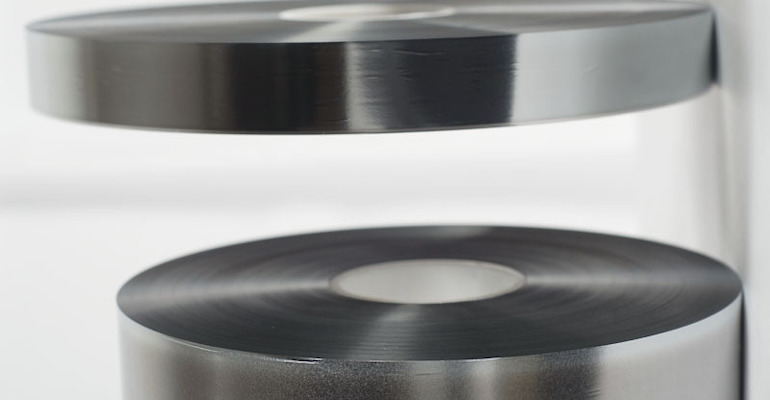
New Engineering Polymer a Sustainable Option for EV Capacitor Films

Materials giant Borealis has launched Stelora, a new class of sustainable engineering polymer based on renewable feedstock that offers increased strength and durability in addition to a step change in heat resistance.
Stelora was developed in collaboration with Topas Advanced Polymers, the world’s leading producer of cyclic olefin copolymer (COC). It is created using a unique process that combines COCs, which are a relatively new class of clear, high-purity polymers, with polypropylene (PP). The resulting material, called ethylene-propylene-norbornene (EPN), is suitable for a range of technically advanced applications, primarily in e-mobility and renewable energy generation. This solution offers a sustainable alternative to conventional engineering polymers while meeting the high-temperature requirements of energy-saving power semiconductors for invertors.
Stelora poised to replace engineering polymers
“Stelora is a unique solution that combines enhanced sustainability with elevated performance. We are confident that, within a short time, it will replace existing engineering polymers in a range of applications, providing our customers with a cost-effective, high-performance solution that also drives circularity and energy efficiency,” explained Ilkka Pentillä, CEO, Tervakoski Films Group, a longstanding Borealis customer of capacitor grades.
The first commercially available application of Stelora is in a high-heat-resistant capacitor film. The dielectric capacitor film offers all the benefits of one made using PP resin as a dielectric, but with significant performance enhancements, including heat resistance, superior electrical properties at high temperatures, and increased efficiency, according to Borealis. Stelora-based film is also fully compatible with existing converting lines, so it can be processed by customers without the need for investment in new equipment, infrastructure, or assets.
Supporting the e-mobility transition
Heat-resistant capacitors are important enablers in the transition to renewable energy and e-mobility. By closing the product performance gap between polyolefin-based polymers and high-temperature engineering plastics, Stelora improves the overall efficiency of heat-resistant capacitors.
Their cost and energy efficiency benefits are based on several complementary mechanisms. High-heat-resistant capacitors degrade more slowly, so they need to be replaced less frequently. This makes them more suitable for use in offshore wind installations, where repairing and replacing parts is challenging.
Further, as the capacitors can tolerate higher temperatures, less space is required for cooling, reducing the size and construction cost of inverters. The same size-reducing mechanism enables the production of smaller and more energy-efficient final products that use transmitted energy, including electric vehicles.
Circular by design
Stelora’s sustainability benefits go beyond energy efficiency through the use of renewable feedstock. Bart Verheule, global marketing director for energy, explained: “At Borealis, we’re strongly aligned to the principles of both the UN Sustainable Development Goals and the European Green Deal. And, therefore, with Stelora we’re proud to be launching this transformative material solution for capacitor film that combines outstanding performance with a number of important sustainability advantages as we reinvent essentials for sustainable living. Though the capacitor film market shall be the first to enjoy its benefits, we’re exploring how Stelora’s many advantages can be potentially extended to other high-performance applications in different sectors.”

Leave a Reply